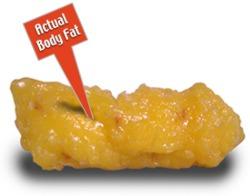Ok, I’m not talking about extra pounds we may carry around; I’m talking about EATING fat. I get asked a lot about whether we should eat fat or what kind of fats. Fat free, Low-fat, non-fat, trans fat, saturated fat…what’s good for me and what’s gonna kill me?
What does healthy fat do for our body?
- Absorb the fat soluble vitamins A, S, E, K, and prevent deficiencies of these vitamins.
- Play a huge role in helping you manage your moods, stay on top of your mental game, fight fatigue, and even control your weight.
- Helps food to stay in the stomach longer, and leaves you feeling more satisfied and less hungry later.
- Provides back-up energy if blood sugar supplies run out (after 4-6 hours without food).
- Provides insulation under the skin from the cold and the heat.
- Protects organs and bones from shock and provides support for organs.
- Surrounds and insulates nerve fibers to help transmit nerve impulses.
- Fat is part of every cell membrane in the body. It helps transport nutrients and metabolites across cell membranes.
- Make a variety of other building blocks needed for everything from hormones to immune function.
What happens when we don’t have enough fat in our diet?
- Dry, scaly skin
- Hair loss
- Cold intolerance
- Bruising
- Poor growth
- Lower resistance to infection
- Poor wound healing
- Can cause weight gain as we’re likely eating to many carbohydrates and sugars
The key is to know which ones to eat, and which to avoid.
Saturated fats and trans fats are NOT healthy fats as they raise your cholesterol and increase your risk for heart disease.
But monounsaturated fats and polyunsaturated fats are good for you, lowering cholesterol and reducing your risk of heart disease.
Also remember that a “fat-free” label doesn’t mean you can eat all you want without consequences to your waistline. Many fat-free foods are high in sugar, refined carbohydrates, and calories.
Ok – so what should we do?
- Try to eliminate trans fats from your diet. Check food labels for trans fats. Avoiding commercially-baked goods goes a long way. Also limit fast food.
- Limit saturated fats by reducing red meat and full-fat dairy foods. Try beans, nuts, poultry, and fish instead of red meat and switching from whole milk and other full-fat dairy foods to lower fat versions.
- Eat omega-3 fats every day. Good sources include fish, walnuts, ground flax seeds, flax seed oil, canola oil, and soybean oil.
- Eat less red meat (beef, pork, or lamb) and more fish and chicken
- Go for lean cuts of meat, and stick to white meat, which has less saturated fat.
- Bake, broil, or grill – don’t fry
- Remove the skin from chicken and trim as much fat off of meat as possible before cooking.
- Choose low-fat milk and lower-fat cheeses like mozzarella whenever possible; enjoy full-fat dairy in moderation.
- Use liquid vegetable oils such as olive oil or canola oil instead of shortening or butter.
- Avoid cream and cheese sauces, or have them served on the side.
Enjoy a moderate amount of healthy fat each day with the peace of mind that you are protecting your heart, brain and your body with every bite!


